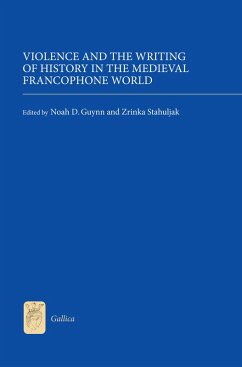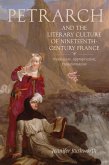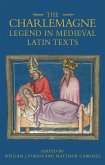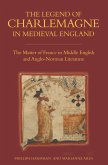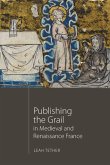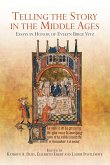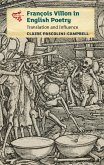An examination of medieval historican writings through the prism of violence.
The concept of medieval historiography as "usable past" is here challenged and reassessed. The contributors' shared claim is that the value of medieval historiographical texts lies not only in the factual information the texts contain but also in the methods and styles they use to represent and interpret the past and make it ideologically productive. Violence is used as the key term that best demonstrates the making of historical meaning in the Middle Ages, through the transformation of acts of physical aggression and destruction into a memorable and usable past.
The twelve chapters assembled here explore a wide range of texts emanating from throughout the francophone world. They cover a range of genres (chansons de geste, histories, chronicles, travel writing, and lyric poetry), and range from the late eleventh to the fifteenth century. Through examination of topics as varied as rhetoric, imagery, humor, gender, sexuality, trauma, subversion, and community formation, each chapter strives to demonstrate how knowledge of the medieval past can be enhanced by approaching medieval modes of historical representation and consciousness on their own terms, and by acknowledging - and resisting - the desire to subject them to modern conceptions of historical intelligibility.
Noah D. Guynn is Associate Professor of French at the University of California, Davis; Zrinka Stahuljak is Associate Professor of French and Comparative Literature at the University of California, Los Angeles.
Contributors: Noah D. Guynn, Zrinka Stahuljak, James Andrew Cowell, Jeff Rider,Leah Shopkow, Matthew Fisher, Karen Sullivan, David Rollo, Deborah McGrady, Rosalind Brown-Grant, Simon Gaunt
The concept of medieval historiography as "usable past" is here challenged and reassessed. The contributors' shared claim is that the value of medieval historiographical texts lies not only in the factual information the texts contain but also in the methods and styles they use to represent and interpret the past and make it ideologically productive. Violence is used as the key term that best demonstrates the making of historical meaning in the Middle Ages, through the transformation of acts of physical aggression and destruction into a memorable and usable past.
The twelve chapters assembled here explore a wide range of texts emanating from throughout the francophone world. They cover a range of genres (chansons de geste, histories, chronicles, travel writing, and lyric poetry), and range from the late eleventh to the fifteenth century. Through examination of topics as varied as rhetoric, imagery, humor, gender, sexuality, trauma, subversion, and community formation, each chapter strives to demonstrate how knowledge of the medieval past can be enhanced by approaching medieval modes of historical representation and consciousness on their own terms, and by acknowledging - and resisting - the desire to subject them to modern conceptions of historical intelligibility.
Noah D. Guynn is Associate Professor of French at the University of California, Davis; Zrinka Stahuljak is Associate Professor of French and Comparative Literature at the University of California, Los Angeles.
Contributors: Noah D. Guynn, Zrinka Stahuljak, James Andrew Cowell, Jeff Rider,Leah Shopkow, Matthew Fisher, Karen Sullivan, David Rollo, Deborah McGrady, Rosalind Brown-Grant, Simon Gaunt
Dieser Download kann aus rechtlichen Gründen nur mit Rechnungsadresse in A, D ausgeliefert werden.

